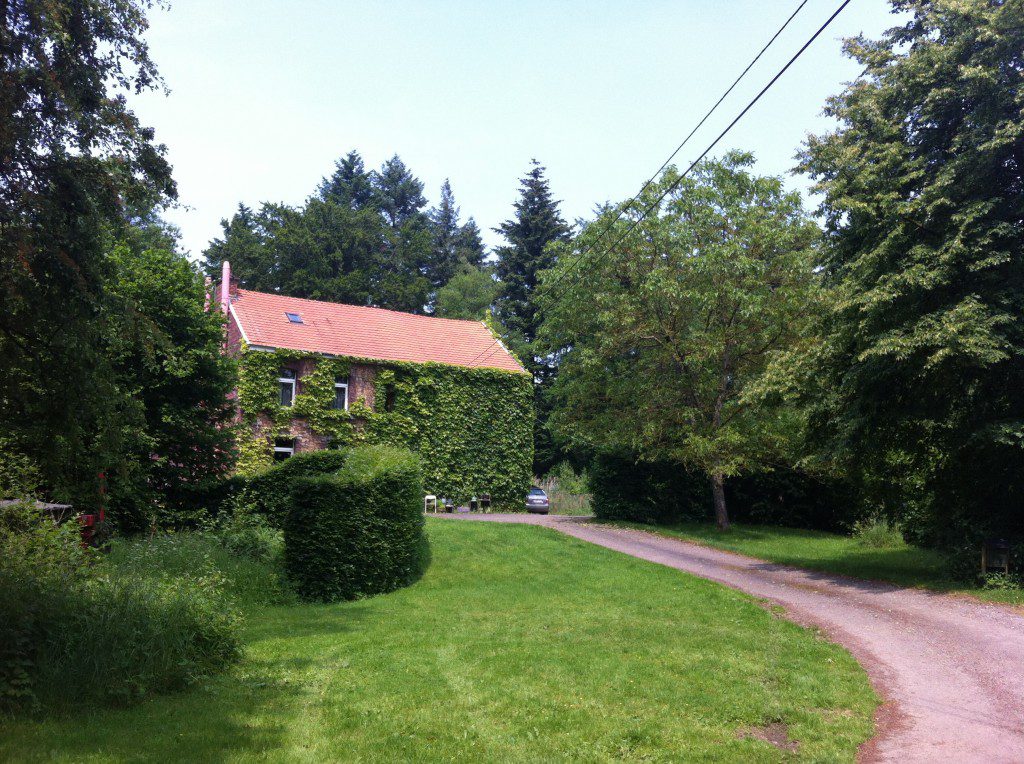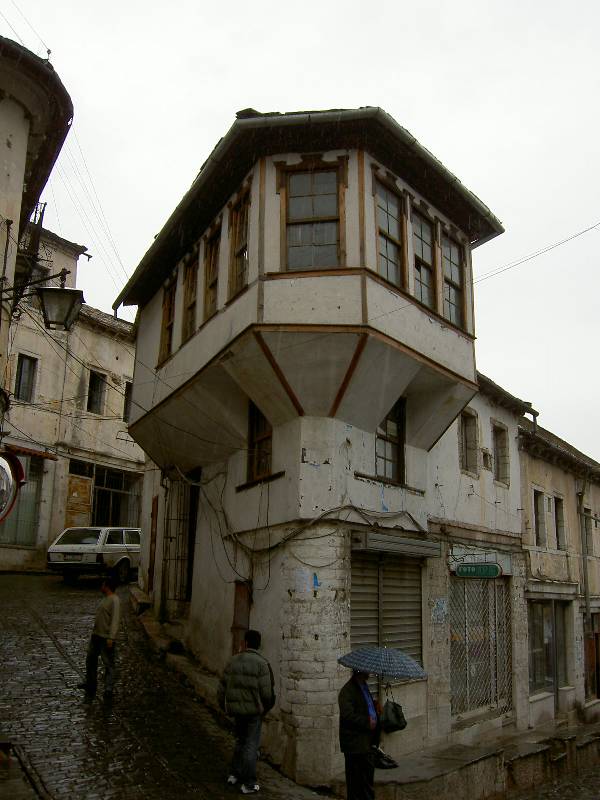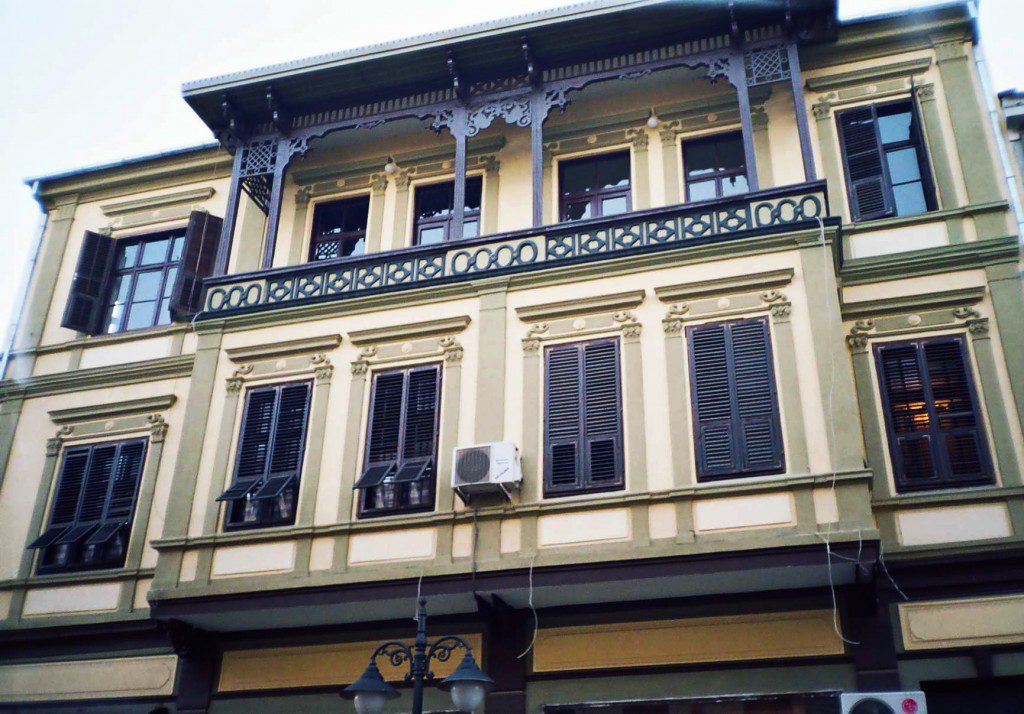Buying a house in France
So you’re surfing the net:you’ve been dreaming about buying a house in France. And you see an ad for an incredible flat in Paris or a medieval house in Avignon. You say to yourself, “I’d like to own that.” It would be cool. And now you’re dreaming of walking the Paris streets at night, sitting in the cafés drinking café au lait and reading Le Monde. Totally hip. How do you make this dream a reality?
Well, first you need the money. But let’s assume you’ve got the cash to buy the city flat or village house. Second, you’ve got to go to France and find property you like. That’s easy. Then what? Of course, this dream, like all others, gets a reality-check. The reality of maneuvering through a foreign legal system, paying taxes and dealing with lawyers. It’s a downer; but you have to do it if you want to keep the dream alive. Unless you’re fluent in French and have studied law at the Sorbonne, you may be in for a shock.
This can be nasty even for French speakers because obscure legal terms are unlikely to be understood. Let’s face it, the average American does not understand the English language documents in a standard house closing. The bottom line: the legal system of France is totally different from ours. France has a civil law system based on codes; the United States has a common law system based on English practices.
Nevertheless, there are reassuring similarities between the legal practices of France and the United States when it comes to buying a house. These similarities center around the stages of the process, obtaining financing and the legal formalities. Though the formalities are similar, the devil is in the details. Let’s assume you’re buying a flat or house. The following are the basic steps for buying property in France.
Finding the Property
Probably, you will use the services of an agent immobilier (real estate agent) specializing in properties in the region where you intend to buy. As in the States, the agent will show you a selection of properties in your price range and lead you through the phases of the sale. The agents are generally under contract by the sellers of property, and ordinarily the seller pays their commission which ranges from 1% to 10% of the purchase price of the property or even a fixed sum.The lower percentage a result of online neo-agencies. If the buyer pays the agent’s commission, this fact should be made clear at the beginning of the transaction and the level of commission must by law be clear in the advertised sale price.
Inspecting the Property
This is pretty obvious stuff. It is the buyer’s responsibility to inspect and, if necessary, hire a geometer to survey the property. The condition of the roof, masonry and basic systems should be thoroughly inspected. The buyer can hire an expert to do this. All Housing comes with a guarantee against hidden defects or vices cachés.
The Notaire
The notaire is the legal expert in the process who makes certain that the transaction complies with the formalities of French law and that all documents are filed correctly so that the title is transferred from seller to buyer. The notaire does not represent the seller or the buyer, but owes his or her principal obligation to the State.
Here lies a central difference between French and American practices regarding a closing of real estate. A closing in the States is treated like an adversary proceeding where each party -seller, buyer and bank- has separate counsel. Each party is responsible for understanding the terms of the deal and no lawyer acts for the State. This is not true in France, though if you want you can retain the services of a separate notaire at no extra charge .
Promesse de Vente
This is a preliminary contract involving the sale of property in France. It is key. The promesse is a promise by the seller to sell the property, to a particular buyer at an agreed price. Originally this meant that the buyer does not promise to buy the property, but rather purchases an option to buy the property within the option period specified in the contract. This period is usually two or three months. The buyer pays a deposit of 5% to 10% of the purchase price to purchase the option. This money is held in escrow by the notaire,
To be valid, the promise of sale must be evidenced by an authentic deed (drawn up by a notary) or by a deed under private signature registered with the tax office, within ten days of its acceptance by the beneficiary. The registration fees amount to 125 €. Moreover, when it is granted for a period of more than 18 months, it must be carried out by a notarial deed.
In return, the seller takes the property off the market and reserves it for the buyer for the duration of the option.
At the end of the option period, the buyer may exercise the right to buy and pay the balance of the purchase price to the seller. When the buyer opts to buy the property, the buyer is obligated to buy it. it uthe case that the seller kept the deposit as compensation however a ruling in a case in 2021, the French Supreme Court, the Cour de Cassation, judged that the contract obliged the buyer to purchase the property and that damages was not a sufficient remedy.
Often in a hurry to conclude, buyer and seller sometimes imagine that the signing of the preliminary contract does not commit to much. This is false: despite its name, this preliminary agreement constitutes a real “contract”, which entails obligations for both parties. It allows them to specify the conditions of the future sale.
Compromis de Vente
This is also a preliminary contract involving the sale of property in France. It is much more serious than the promesse. The compromis is a bilateral contract, that is, it is two sided. The seller agrees to sell the property and the buyer agrees to buy it. The compromis is not to be taken lightly by the buyer. It engages the buyer to purchase the property. The degree of risk and level of legal obligation is more substantial than that of the promesse. According to Stephane Gendrel of France Houses, “any breach of this agreement entitles the other party to claim damages.”
These damages may exceed the deposit depending on terms of the contract and the facts of the case. The formality in the US is slightly different. In most cases, buyer and seller enter into a contract of sale. This contract may be contingent on the happening of several events, like the obtaining of financing. But generally we don’t use so many types of preliminary contracts before getting to the actual sale. If the contingent clauses are met, the contract becomes final.
Financing
The contract, whether the promesse or compromis, can contain a clause stating that the buyer is going to finance the purchase price by, for example, borrowing money from a bank. This is called a clause suspensive, says Mr. Gendrel. It is really important. If the buyer cannot obtain financing, the deal is off. It is, Mr. Gendrel says, as if the contract never existed. This is important because it limits the buyer’s risk of losing money or paying damages.
So, for example, if you sign a promesse and it contains a clause suspensive, and you fail to get the bank loan, you get your deposit back. This clause suspensive is similar to the standard contingency clause in the American contract of sale. If the buyer fails to obtain a loan, the deposit held in escrow is returned to the buyer, and the seller puts the property back on the market.
Other Contingency Clauses
There are several contingency clauses, other than financing, that can be put in either the promesse or compromis to allow the buyer to get out of the contract and get the deposit back. The sale price must be adequate to pay off existing mortgages on the property. Otherwise the buyer could not get good title. Administrative claims also must not exist that impede the buyer’s ownership of the property. The land survey must confirm the exact area the buyer intends to buy.
Acte de Vente
This is the final sales contract transferring title to the property from seller to buyer. At this time, the balance of the purchase price is paid. The buyer also assumes the risk of loss and insurance costs of the property. The notaire also registers the name of the buyer as owner of the property.
Fees
The notaire’s fee, which is fixed by law and paid by the buyer is calculated on a sliding scale.
| TRANCHES D’ASSIETTE | TAUX APPLICABLE |
| De 0 à 6 500 € | 3,870 % |
| De 6 500 € à 17 000 € | 1,596 % |
| De 17 000 € à 60 000 € | 1,064 % |
| Plus de 60 000 € | 0,799 % |
These fees are a substantial hit. For example, if you buy a house in France for €200,000,
| TRANCHES D’ASSIETTE | TAUX APPLICABLE | ÉMOLUMENTS PROPORTIONNELS |
| De 0 à 6 500 € | 3,870 % | 6 500 X 3,870 % = 251,55 € |
| De 6 500 € à 17 000 € | 1,596 % | (17 000 – 6 500) X 1,596 % = 167,58 € |
| De 17 000 € à 60 000 € | 1,064 % | (60 000 – 17000) X 1,064 % = 457,52 € |
| Plus de 60 000 € | 0,799 % | (200 000 – 60 000) X 0,799 % = 1118,60 € |
€TOTAL AU TITRE DES ÉMOLUMENTS PROPORTIONNELS = 1995,25 €
However the notaires fee is only a percentage of the total payable as TVA,purchase tax,land registry fees and disbursements need to be accounted for.
Emolument du notaire (hors TVA)
Emolument proportionnel de vente
Droits dus au Trésor Public
Coût lié à la publicité foncière (fichier immobilier)
Débours (Factures des intervenants tiers au dossier)
Estimation des frais annexes
Evaluation de la TVA (Trésor Public)
Taxes
A non-resident owner of a second home may have to pay a capital gains tax on resale of the property.The 2012 Finance Act introduced a new tax system for the sale of occasional residences. Capital gains of more than 50,000 euros realized on second homes are subject to a surcharge ranging from 2 to 6%. However, owners of occasional dwellings may be exempt if the capital gain on the secondary residence is used to purchase a principal residence. The capital gain generated after the sale of a second home is taxed on income tax at a rate of 19% after deduction, depending on the length of time the property is held. If the age exceeds 22, the owner will be exempt. The capital gain is also subject to social security contributions, up to 15.5%.
A non-resident also may have to pay income taxes if income is received from leasing the property. Local taxes vary regionally and are based on the property’s theoretical rental value. There are two types of local taxes: the Tax d’Habitation and the Tax Fonciere. The tax d’habitation is payable by the person who occupies the property, and the tax fonciere is payable by the owner of the property.Taxd’Habitation is being phased out for main residences but will remain in force for second homes.
Inheritance
Giving away your property by will is limited by French inheritance law. Unlike the US, where you can dispose freely of property by will, in France legal heirs have rights to the property that can not be cut off by private contract. This is a complicated subject and requires the opinion of an expert. If, after all this you’re still willing to go forward, then just take a deep breath and jump in. It’s worth it.
Original article by John J. A. Burke Morris Township, NJ 10/11 1996
Updated by Graham Hill Chenac St Seurin D’Uzet 17 FR 09/11 2022











